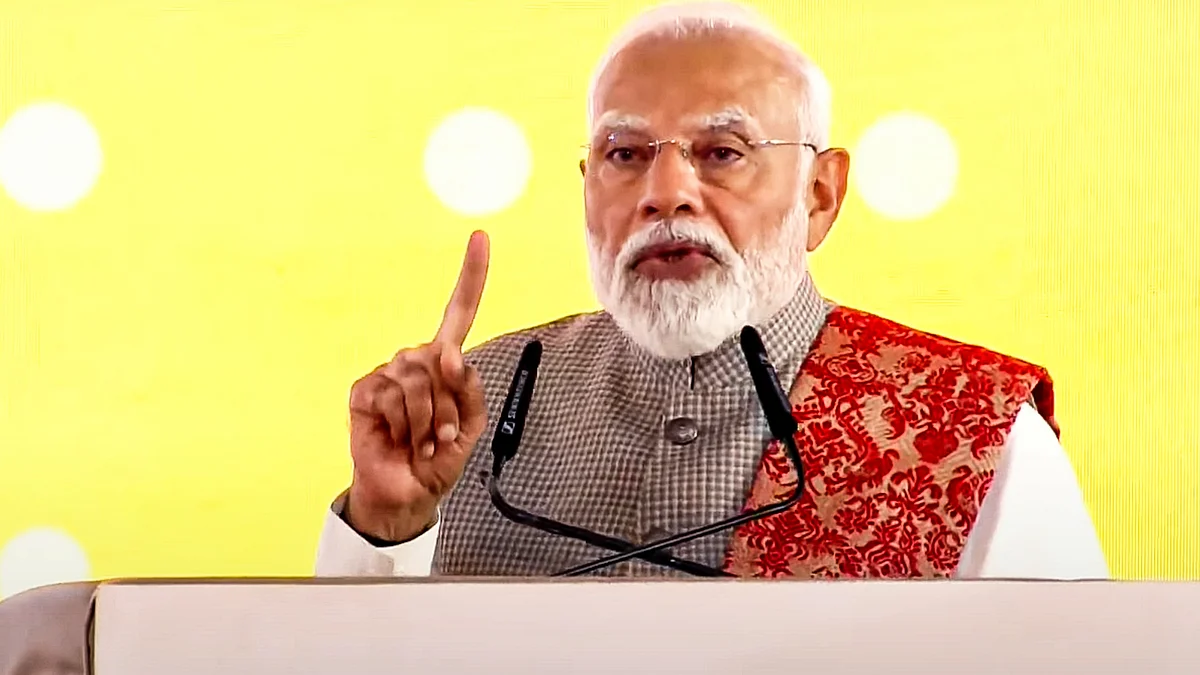PM Modi’s BA degree: Arguments for and against disclosure
Why is DU treating Modi's degree as a state secret? How can anyone ‘misuse’ it to create mischief after all these years?

India's solicitor-general Tushar Mehta argued before Delhi High Court that Delhi University was right in denying access to the BA degree of Prime Minister Narendra Modi. Mehta has been arguing this case since 2017, when the high court stayed the direction of the Central Information Commission on disclosing the details.
Ironically, the present Union home minister and late Union minister and BJP leader Arun Jaitley had displayed the degree at a press conference in New Delhi in 2016. They had also displayed the prime minister’s MA degree in ‘Entire Political Science’ obtained from Gujarat University. The case has passed through as many as six different judges in the last six years before the arguments were finally concluded on Thursday 27 February, and the judgment reserved by Justice Sachin Datta.
“A third party cannot walk in and say that he wants personal details of someone merely because he is curious… Public may get interested in something but that is not public interest…It can be Tushar Mehta's degree. It can be anybody else's degree. It is my personal information… mere curiosity is not enough to approach RTI forums…such applications cannot be filed by strangers…,” is what the solicitor-general argued in the last few hearings. On Thursday, he finally offered to show the BA degree to the judge in confidence but not to others.
“This is a classic case…not only (that) the applicant who has applied for the information is a busy body….,” Mehta said. “Here is a case where a stranger walks into the RTI office of a university and says, out of 10 lakh students, give me the degree of X. The question is whether anyone can walk in and ask for degrees of others?” Mehta asked.
The petitioners and intervenors argued that Section 8(3) of the RTI Act clearly states that for information which relates to matters that are over 20 years old, most of the exemptions in the RTI Act cannot be claimed to prevent disclosure of information. Since the information sought pertains to 1978, over 47 years ago, arguments for breach of privacy do not apply, they said. DU itself had published results of more than 300 recent exams on its website and also has a link to the webcast of the convocation ceremony for unrestricted public viewing.
The intervention applications also highlighted international practice — universities in the USA, Scotland, New Zealand, Australia, and the United Kingdom publicly disclose names of students graduating from the university.
Appearing for the applicant, senior advocate Sanjay Hegde submitted that the information sought from DU would normally be published by any university and actually used to be published on notice boards, the varsity's website and even in newspapers. “This is the information on the basis of which people make decisions. It is based on a Bachelor’s degree that I can seek an admission to LLB. Even matrimonial decisions are made on the basis of educational qualifications. The fact that this relates to an old degree does not in any way immunise information being republished,” he said.
“Whether a person has passed or failed an examination, there is definitely public interest in its disclosure… if there is doubt on the degree of any kind, public interest weighs towards the disclosure and public interest weighs against concealment. As far as public interest is concerned, even in case of politicians holding elected office, the Supreme Court has already held that it requires disclosures of a lot of things, including assets and liabilities…,” Hegde had submitted.
The judgment may remain reserved for a long time; and as and when it is delivered, the aggrieved party can be expected to go for an appeal, thereby prolonging the suspense.
Follow us on: Facebook, Twitter, Google News, Instagram
Join our official telegram channel (@nationalherald) and stay updated with the latest headlines
